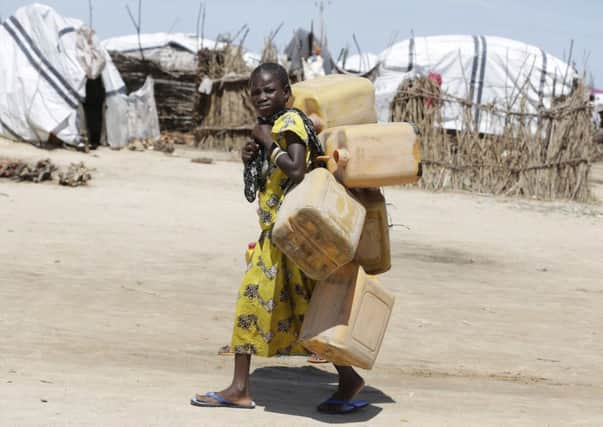Boko Haram refugees return home to devastation


The largest group yet of such refugees, nearly 2,000, was transported to villages and the town of Konduga yesterday. Though they are just 22 miles from Maiduguri, northeast Nigeria’s biggest city, they are also on the fringes of the Sambisa Forest where the Islamic extremists still have strongholds.
How this group of returnees survives, and whether the military can protect them, could influence other refugees whom the government is keen to resettle. Maiduguri alone is home to about one million of the 2.6 million people forced from their homes in Nigeria and neighbouring countries during Boko Haram’s seven-year uprising that has killed some 20,000.
Advertisement
Hide AdAdvertisement
Hide AdDespite the threat from insurgents, “food is the most important issue,” said one returnee, Baari Mustapha. “If not, there will be serious hunger and starvation.”
Food is already a critical issue. Children are dying of starvation in refugee camps like Dalori, where many of the returnees had been living in tattered tents and makeshift huts of straw on the outskirts of Maiduguri.
Dalori residents were among hundreds who protested last week, accusing officials of stealing their food donations. Nigeria’s government is investigating the charges.
The refugees say the camps are miserable, and they hope life will be better back home.
“Life has not been easy in the camp,” said Bintu Ganaye, a 32-year-old mother surrounded by her five children. “Our major fear is that we don’t know what the future holds out for us as we return empty-handed.”
The Borno state government some months ago tried to force refugees to return home, only to meet resistance from people who said it was not safe. Smaller groups have voluntarily returned.
Yesterday, the refugees waited hours in sweltering heat for the arrival of Borno state governor Kashim Shettima, who assured them that food rations would be shipped to them, along with seeds to cultivate land cleared for them.
The villagers said they believe they still could be attacked by Boko Haram on their traditional farming lands away from their villages.